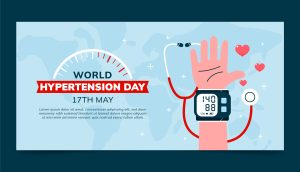 16 May 2024 – Hypertension is a silent yet deadly public health problem. Today, on World Hypertension Day 2024, we remind all adults to get your blood pressure measured accurately and control it to live longer. Early detection and careful management of hypertension are vital.
16 May 2024 – Hypertension is a silent yet deadly public health problem. Today, on World Hypertension Day 2024, we remind all adults to get your blood pressure measured accurately and control it to live longer. Early detection and careful management of hypertension are vital.
Hypertension is a leading risk factor for premature death and disability – in the WHO Eastern Mediterranean Region especially. Untreated hypertension can lead to serious medical complications such as stroke, heart attack, heart failure, kidney damage, and other debilitating health issues.
In 2019, hypertension was estimated to affect 38% of adults aged 30–79 years in the Region – more than 104 million people. Shockingly, more than half of them (51%) are unaware of their status, and over 60% of the total are not receiving treatment. Just 16% of the total number have their condition under control.
Established risk factors include unhealthy diet (high salt and low fruit and vegetable intake), physical inactivity, tobacco and alcohol use, and obesity. Emerging risk factors include pollution (air, water, noise, light), urbanization and loss of green space.
In humanitarian settings in the Region, such as conflict-affected contexts or areas affected by man-made and natural disasters including climate-related disasters, the burden of hypertension is even worse. This is the result of limited resources, heightened stress levels and inadequate access to health care in such settings.
Urgent action is needed to improve diagnosis, treatment, and control rates to combat the burden of hypertension in the Eastern Mediterranean Region. It’s vital to empower people to accurately measure their blood pressure (or have it measured for them), take control of their health, and embrace lifestyle changes.
Currently, the significant gaps in hypertension management and control efforts in the Region hinder progress towards Sustainable Development Goal target 3.4 – to reduce premature mortality due to noncommunicable diseases.
Hypertension, and its complications, worsens inequalities and imposes economic hardships on patients and their families, as well as on health systems and national economic and development agendas.

 World Hypertension Day might sound like an intensely stressful day, which causes high blood pressure, but it is in fact an educational event, designed to prevent instances of hypertension.
World Hypertension Day might sound like an intensely stressful day, which causes high blood pressure, but it is in fact an educational event, designed to prevent instances of hypertension. The WHD was first inaugurated in May 2005 and has become an annual event ever since. The purpose of the WHD is to promote public awareness of hypertension and to encourage citizens of all countries to prevent and control this silent killer, the modern epidemic. The theme for World Hypertension Day is Know Your Numbers with a goal of increasing high blood pressure (BP) awareness in all populations around the world.
The WHD was first inaugurated in May 2005 and has become an annual event ever since. The purpose of the WHD is to promote public awareness of hypertension and to encourage citizens of all countries to prevent and control this silent killer, the modern epidemic. The theme for World Hypertension Day is Know Your Numbers with a goal of increasing high blood pressure (BP) awareness in all populations around the world.